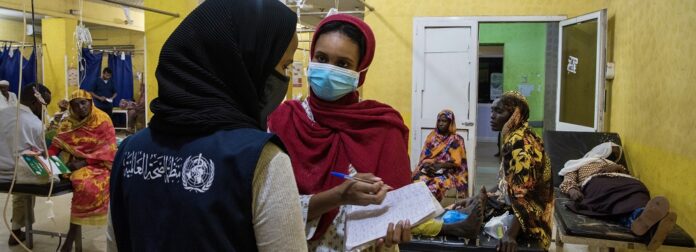
23 April 2023 – More than 420 deaths and 3700 injuries have been reported by the Federal Ministry of Health since the escalation of violence erupted in Sudan on 15 April – but paramedics, frontline nurses and doctors are often unable to access injured civilians, because of insecurity and attacks on ambulances and health facilities. The Federal Ministry of Health also reported 20 hospitals as no longer functional and 12 others at risk due to lack of medical supplies and health care workers.
WHO has already distributed life-saving emergency supplies and fuel to major hospitals, but more widespread distributions are constrained by the volatile security situation. We are on standby for the first opportunity to assist without compromising the safety of our staff in an increasingly hazardous environment to humanitarian workers.
Analysis
It’s a given that a hospital is always working and has resources, but what if there is a power outage, gas stops, or the water stops running? We take for granted the access to resources in our daily life in America, and we don’t notice its importance until its gone. What happens after the mass casualty and people need help afterward? Rural areas that are neglected need help just as much as urbanized areas. How can people respond when the communication lines are down and the areas of access are cut off just like in Sudan due to the security situation?
Additionally, the situation in Sudan is even more dire when health care workers can’t even access their patients due to attacks on ambulances and hospitals, making rescue and transport of mass casualties even more difficult. It sounds like a lack of protection for the doctors in nurses is what is preventing a better mass casualty response. This may be an area that is overlooked because the casualties are the point of focus in these types of events. How can we maintain the safety of the first responders as they access the injured masses?
Source
WHO, “WHO training on mass casualty management could have saved a quarter of the lives lost in Sudan to date if health care workers had access to injured civilians,” WHO, accessed on August 30, 2023, https://www.emro.who.int/media/news/a-quarter-of-the-lives-lost-in-sudan-to-date-could-have-been-saved-if-health-care-workers-had-access-to-injured-civilians.html



